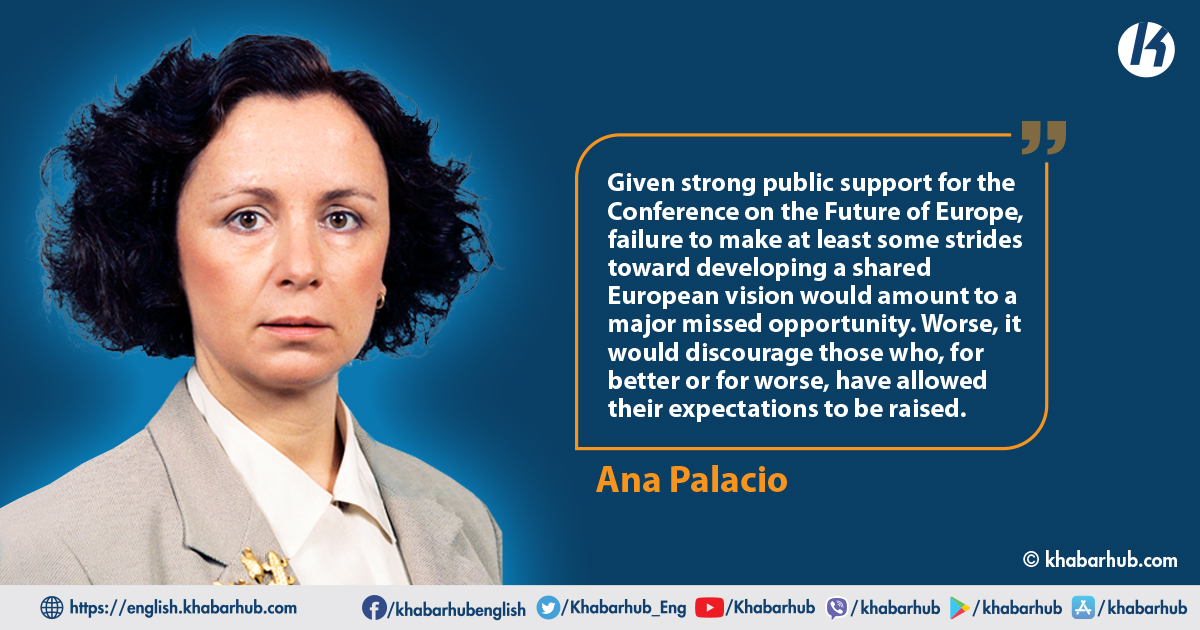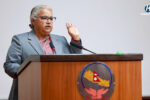The much-anticipated Conference on the Future of Europe has begun. Announced by the European Commission and the European Parliament at the end of 2019, the conference is billed as “a citizen-led series of debates and discussions that will enable people from across Europe to share their ideas and help shape our common future.” It is unlikely to deliver.
I would like nothing more than for the conference to produce a shared vision of Europe’s future, strengthening the European Union’s foundations and dampening the siren song of populism.
But consider this: the conference was nearly canceled before it began, owing to organizational challenges, many arising from institutional wrangling.
How can the EU be expected to articulate a shared vision, shaped by the voices of its people, if it can barely even introduce a platform for discussion?
Ultimately, European institutions completed their negotiations – after sparring over everything from the conference president’s institutional affiliation to the entity that would channel the discussion into final proposals – and the event was salvaged.
The cold reality is that the powers that be (EU member states) lack the political will needed to make meaningful change possible. And we can forget about treaty changes.
Yet, watching the proceedings so far, one would hardly know that its purpose is to restore the democratic bond between the EU and its citizens.
This is partly a matter of politics. From the start, it was an open secret that the conference was timed according to the French and German electoral cycles.
Its conclusion was intended to coincide with French President Emmanuel Macron’s re-election bid in April 2022 and France’s assumption of the European Council presidency.
And, in fact, it was Macron who kicked off the event. In an introductory speech lasting 20 minutes – double his allotted time – he energetically praised the “European model” of tackling the COVID-19 pandemic and pushed the European Parliament’s plenary sessions to return to Strasbourg.
It was not quite the rallying cry for citizen engagement one might have expected.
Likewise, the composition of the plenary does not enhance the credibility of the conference’s democracy-enhancing mission: of 433 members, only 108 are citizen representatives (tasked with speaking on behalf of the European and national citizens’ panels).
And there are just eight representatives of trade unions, employers, and civil-society organizations.
To be sure, the rest of the plenary is hardly undemocratic. The group includes 108 representatives from the European Parliament, 54 from the Council (two per member state), and three from the European Commission, as well as 108 representatives from national parliaments.
But the ratio of political leaders to citizen representatives is not at all what one would expect to see at a conference that is supposed to be dedicated, first and foremost, to direct citizen engagement.
Reactive, delayed, and piecemeal solutions can stave off disaster, but they cannot form the basis for a united and credible EU.
The risk now is that the conference will be overtaken by a proxy battle among EU institutions: the European Parliament hopes to launch the right of legislative initiative, and the Council seeks to rein in expectations.
Even if that does not happen, those who hope the conference will pave the way for EU reform – much like the Schuman Declaration did in 1950 – will probably be disappointed.
The cold reality is that the powers that be (EU member states) lack the political will needed to make meaningful change possible. And we can forget about treaty changes.
Admittedly, the EU has demonstrated that it is capable of getting its act together and devising creative reforms that do not require amending its founding treaties.
But such events are rare, and they have always occurred at the eleventh hour, after a long, grim look into the abyss, such as during the sovereign-debt and migration crises of the past decade.
Reactive, delayed, and piecemeal solutions can stave off disaster, but they cannot form the basis for a united and credible EU.
The conference is unlikely to produce the vision Europe needs. Yes, the EU will publish a list of admirable – and predictable – objectives, covering everything from climate change and innovation to inclusive growth. And the internal market remains as important as ever.
Worse, it would discourage those who, for better or for worse, have allowed their expectations to be raised. That is certainly not in the EU’s interests.
But this is not the same as establishing a genuine and concrete understanding of what citizens want their future as Europeans to look like. This is a prerequisite to loosening populism’s grip and restoring key aspects of the social contract.
Of course, Europe will never be a homogenous entity, and perspectives will vary. The migration crisis appears very different from Italian and Greek shores than it does from the polders of the Netherlands.
An aggressive maneuver by Russia will not strike fear in the hearts of Spaniards as it does to Estonians, Latvians, and Lithuanians.
But this does not preclude a broadly shared vision. And, given strong public support for the conference, failure to make at least some strides toward developing one would amount to a major missed opportunity.
Worse, it would discourage those who, for better or for worse, have allowed their expectations to be raised. That is certainly not in the EU’s interests.
(Ana Palacio, a former minister of foreign affairs of Spain and former senior vice president and general counsel of the World Bank Group, is a visiting lecturer at Georgetown University)
Copyright: Project Syndicate









Comment